David Brooks is a New York Times columnists who leans conservative, and whose insights into America are thoughtful and grounded in the sentiment that who we are as a country today is rooted in the sins and sanctity of our past.
I found one of his recent columns – What Makes Us All Radically Equal – to be an insightful look at what will sustain us as we tread down the road of racial reconciliation. In the article, Brooks recounts the saga of a white man who purchased an empty school in one of Detroit’s distressed neighborhoods with the intent of turning it into a vibrant community center. Because the white developer didn’t communicate early on with members of the community, the process became a bit of a meat grinder encounter for him. But, the developer was counselled to “just listen” to how the community was expressing a lifetime of betrayal and abuse and forcing him to feel the pain they feel every day. The project proceeded and today is a valuable asset to the neighborhood. On this encounter and the thousands like it across America today, Brooks reflects “You realize that coming together across race is not a neat two-step process: truth and reconciliation. It’s an emotionally complex, thousand-step process, with moments of miscommunication, resentment and embrace. This is the hard process of trying to see each other across centuries of wrong.” The article states that racial encounters have “always been like this” and recounts how Frederick Douglass displayed the same love and hate relationship in his everyday meetings. According to Brooks, what sustained Douglas and what will sustain those of us who want to work at the difficult task of racial reconciliation is a deep and abiding sense of equality and an underlying belief that we are all endowed with natural rights. The author states that “It is the belief that our souls make us all radically equal. Our brains and bodies are not equal, but our souls are. It is the belief that the person who is infuriating you most right now still has a soul and so is still, deep down, beautiful and redeemable. It is the belief that when all is said and done all souls have a common home together, a final resting place as pieces of a larger unity.” I was struck by how Brooks description of our soul and the ramification for community sounded as if they were written by one of my Quaker Friends. The idea that a conservative columnists can arrive at the same understanding as a liberal Quaker gave me great hope for the future of our country. In closing, Brooks wrote “When people hold fast to their awareness of souls, then they have a fixed center among the messiness of racial reconciliation and they give each other grace.” If we can learn to embrace the soul of each other, then we can create our own state of grace from which to heal our wounded world.
0 Comments
In her poem, Leaves and Blossoms Along the Way, Mary Oliver writes God, or the gods, are invisible, quite understandable. But holiness is visible, entirely. I was struck by the image of an entirely visible holiness that is active amidst an invisible God. The idea that holiness abounds and surrounds us is often difficult to embrace when it seems that so much is going backwards in the world today. It feels like God is indeed invisible and holiness is often hidden beneath the crush of remarkably difficult issues such as an epidemic of mass shootings; of the mounting impact from climate change, of unbridled greed; of an ever growing economic divide; of caustic political discourse that threatens our very democracy. Recently, I have felt paralyzed by the weight of these complex issues, each of which seem to have no ready resolve but all of which are integral to living a life of simplicity, peace, and grace. I was fearful when my youngest daughter and her husband were making plans to attend the State Fair, just days after the back to back mass shootings in Texas and Ohio. I was afraid that there would be a copy-cat shooting here in Wisconsin and that the State Fair would be a rich target for a sick shooter. And I knew, there was no way I could protect them if they went. I also knew that praying to God to protect my loved ones was an empty gesture. I don’t believe the Divine works that way. I believe that God loves each of us and whispers in our hearts a call to bring forth his love in the world each day. But some – and sometimes many – are not practiced at listening for that still small voice, let alone acting on it. The shooters in Texas and Ohio most certainly have (or had) that of God within them. The Divine was actively calling out to them, beckoning them to feel his love and to mirror that love in the world, and no amount of my prayers would change that. It is easy to see an abundance of holiness in the world when we look at the wonders of the environment. My wife Jennie planted three butterfly bushes in our back yard years ago, and now we are graced with dozens of butterflies who come yearly to feed on the blossom’s nectar before undertaking their 1,000 mile flight to Mexico. The marvel of these butterflies and how they pass on our yard location in their DNA so their offspring will know where to find sustenance year after year, is a grace almost beyond comprehension. The holiness of the natural world surrounds us if we are willing to slow down and contemplate its beauty. However, one must strain to see the holiness in the individuals who refuse - out of greed or a need for political power - to act on the many issues confronting our world. But here too, our holiness must abound. I’m not talking about a kumbaya type of holiness that ignores the darkness in the world and keeps hoping for Divine intervention to spread peace over the earth. I’m talking about that fierce mama bear love that will see immigrant children abused by our government and will make our elected officials take notice. I’m talking about a kindness that will hear someone speak from their position of privilege and will gently, and lovingly remind them that their station in life was built on the backs of others who did not benefit from such an advantage. Certainly there is a darkness in the world. But just as certainly, there is a holiness that we can call upon from within ourselves and from others of like mind. I am reminded of the quote by the Quaker George Fox in which he states “I saw, also, that there was an ocean of darkness and death; but an infinite ocean of light and love, which flowed over the ocean of darkness.” I believe that we are called to be the light and love, the holiness that flows over the darkness of our days. It is only through each of us that holiness will abound in these times. There is a quote of uncertain origin that sums up our call quite well. Do not be daunted by the enormity of the world's grief. Do justly, now. Love mercy, now. Walk humbly now. You are not obligated to complete the work, but neither are you free to abandon it.
At one Sunday meeting, several Quaker Friends commented on a rally they attended in support of the Muslim community after the New Zealand shootings. All who spoke, remarked on an Evangelical pastor who addressed the rally and asked for forgiveness; stating that the religious right bears some responsibility for the divisive tone in our country. What was so moving about this moment, was that each of the Quakers confessed to how they struggled with the idea of forgiving this person.
Forgiveness is easier accomplished in concept than in the messy reality of life and relationships. That’s why the testimony of these Quakers was so profound to me. By verbalizing their struggle in forgiving this pastor, my Quaker Friends shared their own vulnerability with the rest of us. In one gospel passage, Peter asks Jesus if forgiving someone seven times is enough. Clearly, Peter was done with forgiving and wanted to move on. By responding that we must forgive not seven times, but seventy times seven times, Jesus was instructing us that forgiveness is a journey we must take within ourselves and with those whom we are struggling to forgive. The essence of the forgiveness journey is to arrive at the place where we are able to forgive from our hearts. How do we reach that place where we can let go of the pain, the anger, the mistrust, the guilt, the resentment, and all those confusing feelings that get wrapped up with a sense of being harmed? I believe that my Quaker friends begin to show us the path towards forgiveness. The first step – the one they shared with us – is to acknowledge that we all are imperfect people. We know we should forgive, but we just aren’t ready. It is a mistake, I believe, to deny our feelings of anger and resentment. We must acknowledge them. We must own them. But then we must let them go. I know that letting go is easier said than done. I’ve written about this previously, but want to touch on it again here. Whenever I find myself in turmoil over something that someone has said or done toward me (imagined or real), I hopefully get to a place where I begin to see that there are a lot of “I” statements driving my emotions. I was hurt, I was misunderstood, I was maligned. When I awaken to the many “I” statements driving me, I realize that I am at a place where my ego is outrunning my soul and it is time to slow down. It is time to quiet myself and listen for the whisper of that still, small voice guiding each of us. I’m sure my Quaker friends worked hard to still their hearts and minds and to listen to the voice of the inward guide when they realized they were being asked to forgive someone when they weren’t yet fully prepared to do so. When I reach that point where I know what I’m supposed to do, but can’t quite find it in my heart to act, it is then that I realize that this is beyond my capability. It is then that I give over all these conflicting and confusing thoughts and desires and place them at the foot of God. One of my spiritual heroes is the Trappist Monk, Thomas Merton. Among the many books he wrote is the Sign of Jonas in which he penned what I have found to be one of the most profound statements on mercy that I have read. Merton wrote: God says “What was vile has become precious. What is now precious was never vile. I have always known the vile as precious: for what is vile I know not at all. What was cruel has become merciful. What is now merciful was never cruel. I have always overshadowed Jonas with my mercy, and cruelty I know not at all. Have you had sight of Me, Jonas, My child? Mercy within mercy within mercy." That image of the Divine as endless mercy has haunted and inspired me from the first day that I read it. It haunts me because the aspiration of showing mercy within mercy within mercy, is one that I fail at time and again. I have come to understand that I must accept God’s mercy for me before I can extend mercy and forgiveness to others. That, I believe, may be the most difficult part of the journey towards forgiveness.
Is it possible to live a sacramental life in these times? I’d like to think so. A sacrament, according to one definition is “an outward, visible sign of an inward and spiritual grace.” My guess is that many feel they aren’t living with a sense of internal spiritual grace. In fact, I would bet that a large number of us live an internal life we would define as one of turmoil, of anxiety, of wanting, of despair, of confusion, of doubt, of fear, punctuated occasionally with a sense of joy and grace.
It seems that we are a paradoxical people whose lives vacillate between angst and tranquility, and given that, how could we ever hope to lead a grace-filled life? Here is one example. I had a high school teacher whose act of grace may have saved my life. I was always good at the subject of English in school. Language and writing is a gift that has come easily to me. Because of this gift, I became one of the favored students of Mrs. Clay, my English teacher. Once, in what I thought was a happenstance conversation, she asked me what I was planning to do when I graduated high school. I told her that me and my friend Buzzy were going to join the Air Force together. My answer shocked her. Keep in mind, I graduated high school in 1970, as the Viet Nam war was in full fury. A day or two later, Mrs. Clay approached me and asked if I would consider applying for college if she helped me. College wasn’t really on my agenda. No one in my family – at that point – had ever been to college. I said sure, because I liked her and didn’t want her to think I was ungrateful. Mrs. Clay did all the work. She acquired the college application to her Alma Mater – which was only 30 miles away. She sat me down to fill it out. She made sure all the signatures were in place. She mailed it in. I don’t even know if there was an application fee. And then she dogged me on whether or not I heard anything in response. That was the only college application I made, and I was accepted. She encouraged me to go, and I did. My friend Buzzy wasn’t so lucky. He did join the Air Force and was sent to Viet Nam. He came back as a haunted soul who would wake up screaming in the night. He ended up abusing drugs to numb his pain. I’m convinced that Mrs. Clay’s work to get me to college was an outward, visible expression of grace. She was kind and concerned and willing to do what she could to help out a precocious kid who didn’t think much about his future. What if tomorrow we all woke up and decided to live a grace-filled life, even if we didn’t exactly feel full of grace? What would it be like if you woke up and chose to be thankful for the morning? How would your day change if you peacefully ate your breakfast without simultaneously reading the newspaper or watching TV or checking your phone? What if you decided that your little one’s stubborn refusal to cooperate was a joyful expression of her growing awareness of who she is and how she can command her world? These decisions, and many like them are choices we can make. How many times through the course of a day might we get an opportunity to bestow grace upon ourselves, on those we love and those we encounter? What would our world be if we were determined to serve as an outward, visible sign of our internal grace – even if we weren’t so sure that grace was our motivation. Can our determination to act with grace and kindness become fertile soil for growing a bonified sense of our own internal grace? I don’t know if Mrs. Clay was a spiritual person. All I know is that she bestowed upon me a sacrament that changed my life. Perhaps, the intention of bestowing grace on others is the only sacrament we really need.
Han, is a Korean word that has no ready translation in English. The best description I’ve seen comes from the TV series The West Wing, where U.S. President Bartlet (played by Martin Sheen) explains that Han is " a state of mind. Of soul, really. A sadness. A sadness so deep no tears will come. And yet still there's hope."
Han describes a soul that somehow finds a way to live with the paradox of sadness and hope. It is perversely comforting to know there is a word for how I’ve been feeling: a deep sadness about our planet that is under duress and about our children – a whole generation now - growing up with the sense that they could be killed at school at any moment by an unstable person with a gun. A recent and compelling petition from a young girl pleading for action on climate change expresses the concept of Han far better than anything I can say. Greta, a 16 year old environmental activists from Switzerland, told the World Economic Summit that " I don't want you to feel hope. I want you to feel the fear that I feel. I want you to act as if the house is on fire, because it is.” If you do nothing else today, please watch this compelling one minute video of Greta imploring us all to action. The evidence on Climate Change is undeniable, and yet we allow the deniers to dominate the agenda. If there is any doubt about how serious this has become, just start clicking on some of the topics in this NASA website to gain a better understanding of the plight all humanity faces: global temperature increasing, warming oceans, sea level rising, extreme environmental events, or ocean acidification. Plenty here for a brooding sense of sadness. Thank God for the Gretas of the world to offer a smidgeon of hope for change in the face of impending global disaster. We have the same dynamic on gun control. In just a few weeks it will be Valentine’s day. This year, Valentine’s day takes on a more ominous tone, as it will mark the one year anniversary of the Parkland Florida mass shooting at the Stoneman Douglas High School where 14 students and 3 adults were killed. Since 1982, using the most conservative definition, there have been 108 mass shootings in the United States. We should all be unsettled by the fact that the frequency of mass shootings has tripled in recent years, but we seem to have become numb to them. Point in fact, there was an execution style slaying of five women recently in a Florida bank, but it barely made the national news. I don’t know if we’re numb, or tired, or just getting too old to muster a serious fight on these issues. Or perhaps there are too many issues these days and we feel like there is only so much one can take on. All of this brings me back to Greta and the concept of Han. Greta pleaded that she doesn’t want us to feel hope. But, if Greta didn’t have hope, she would not have traveled 32 hours by train to appeal for action and sanity on climate change. I'm convinced it was her hope for change that brought her to the World Economic Summit. Greta – at 16 years old – seems to have learned how to live with the paradox of sadness and hope. I hope we can learn from her example. I hope that we can continue the fight on these and other critical issues of our time. I hope.
I was sitting in Starbucks, fighting back tears as I read the Eulogy that George W. Bush gave at his father’s funeral. I’ll be the first to admit that I’m a crybaby. I often find myself overcome with strong emotions; mostly at tender moments. If anyone looks at pictures of me at my daughter’s recent wedding, they will see that in many of them (walking down the aisle, the father’s toast, dancing with the bride) I was teary-eyed.
But that doesn’t explain my emotional struggle over the eulogy for George H.W. Bush. This is especially puzzling because I was not much of a fan of either of the Bush men when they served as President. I figure the tears at Starbucks have more to do with where I am in life than with the Bush family. We are coming up on the anniversary of my mother’s death. And, while my father died 30 years ago, I still miss him and occasionally talk to him in my mind. I now know that as I sat reading the Bush eulogy, I was remembering the passing of my parents. I was also – at some level – brooding over the time in the unknown, but shrinking future when my own children will be standing at my funeral and telling the story of me through their eyes. I have learned, in hind sight, that the tears I shed at Starbucks came from a shared sense of humanity. Like I said, the Bush presidents weren’t my favorites, but the tearful words of the son for the father brought out a kind of kindred mourning. George W. Bush was no longer a distant politician whose policies I disdained. He was transformed into a fellow son, mourning the passing of his dad. A friend of mine – a Quaker of long standing and of deep wisdom – recently remarked that we all should learn how to “listen in tongues.” While she applied this idea to Quaker spirituality, I think it can be understood more deeply. Listening in tongues means that we strive to hear the voice - and the pain behind the voice - of those we encounter. Each person has a unique life story; one full of joy, sorrow, disappointment and pride of accomplishment. Isn’t that the lesson we are all learning through the study of Adverse Childhood Experience: that no person is just “one thing.” The present is often crowded with the ghosts of our past and if we don’t learn to listen to those ghosts, we run the risk of repeating our mistakes. By understanding my own pain over the death of my parents, I can begin to see George W. Bush in a more compassionate light. And because of his vulnerability and willingness to share his pain with the world, we gained a new insight into his heart. Listening in tongues means that we learn to hear the heart of each person; that we can hear the whisper of the ghosts still haunting them, that we can hear their fears and their dreams, no matter how faint they may be or how deeply they may be buried. The first step in learning to listen in tongues is learning to hear our own heart; to discern our true voice over those of our frightened self, seeking to cover over our pain. And once we are practiced at listening to our heart, we will find that our center is one of goodness and light. The next step in learning to listen in tongues is to acknowledge that each person we meet also has a center that is goodness and light but for some, that light is faint and the sound of goodness is drowned out by the cacophony of their fears and adverse lessons learned from their past. In the final analysis, listening in tongues is not listening at all. It is most simply, an act of love. And for that, we need no translation.
The Winter Solstice will begin on Friday December 21st at 4:22 PM Central time. This will be the longest night of the year. Throughout the world and through ancient and modern times, this has been a cause for reflection and celebration. It has been a time of joyful anticipation and a celebration of light amidst a prevailing darkness. I would like to share with you a real-life example of the celebration of light against darkness.
As I drive on Burleigh Street to attend Sunday Quaker Meeting, I have passed this particular house numerous times. It would be more accurate to say that I have ignored this house, because my eyes have always been focused elsewhere. But on the Sunday after Thanksgiving, the homeowner placed large, red Christmas bows on the chain-link fence surrounding the property; one bow on each fence post in the front yard. The bright red bows drew my attention to the house from a block away. This is a typical Milwaukee bungalow, nicely maintained with a four-foot chain-link fence in front and a bird bath in the yard. There are two reasons why I haven’t noticed this house before. The first is that this stretch of Burleigh Street is poorly maintained and I keep my eyes on the road in order to avoid the washboard like dips and bumps on the street. The other reason I’ve ignored this home is because directly across the street from it are three hulking, vacant, burnt-out duplexes that stretch from the middle of the block to the corner. One of these three houses has fire damage and I can see the sky through the rafters of the roof. So, as I drive this section of Burleigh Street my eyes are on the road in order to protect my car from damage and then they are on these massive eyesores. These derelict duplexes sit on this block like a black hole in space, sucking up all the light and energy around. I think about the homeowner with the bows on the fence. As they walk out their front door, the dilapidated duplexes are right in front of them. I imagine that these duplexes are what the homeowners see as they sit in their living room and look out their window. To me, the bungalow homeowner with the red bows in the front yard is making a choice. She or he or they are choosing to celebrate the light and refuse to let the darkness on their street prevail. They are saying that at this time, on this block, these people are determined to not only seek the light when confronted with darkness, but they have chosen to be the light on their little corner of the world. God bless them. Lord knows there is plenty of darkness in the world. Just since Thanksgiving we have seen:
At this time of year when we have more dark than light and at this time in history when darkness seems to be prevailing in the world, what is our calling? For me, I want to be like that homeowner who lives on a deteriorating section of Burleigh Street across from three burned out wrecks. I want to be proud of fixing up my part of the world and I want to put out red ribbons to declare to all that light and goodness will prevail. And so, here is my prayer: Lord,
Where is the pain in the world right now? Or perhaps a better question is: where is God in the midst of all the pain we see in the world.
Identifying the points of pain isn’t difficult. In fact, the suffering in the world is all too apparent and found in too many places.
I could certainly go on. I haven’t mentioned the effects of gun violence, poverty, racism, sexism, hunger, homelessness, sex trafficking, poor education, economic dislocation, income inequality, greed and too much more. But this post isn’t intended to be a litany of woes in the world. What I really want to explore is the question of where is God in light of all the suffering. It is not uncommon to hear people proclaim that God must have a plan and as such the suffering we see must be a part of that plan. Can that really be true? I was raised in a very loving family and at no time did my parents deliberately cause me suffering in order to teach me a lesson. My father and mother – who were fallible – could never bring themselves to use suffering as a teaching tool. If my fallible parents were incapable of such actions, I have to believe that the idea is alien to the Divine, as well. In short, I don’t believe that pain and suffering is part of God’s plan. So, if it is not part of God’s plan, is it the result of an active agent of evil in the world? Is the devil preying on people in order to drive us from the arms of God? As I’ve written before, I don’t believe in the devil. Evil, I believe, is the result of people closing off their hearts to God and following the dictates of their own ego. And so the question remains: where is God in all of this? I believe he is tapping us on the shoulder. A good friend and Baptist preacher once told me that he believes God has finished his work in the world. I looked at him kind of puzzled – because after all – this was a prominent Baptist preacher telling me that God was done with us. He explained that God isn’t done with us – but he is done with intervening directly in the world. I agree. As a Quaker, I believe there is “that of God” in each of us; that my unique and eternal soul is linked directly to the Divine. I strive to carve out time each day to sit in stillness; to be in communion with the part of the Divine that is within me. I don’t pretend that God talks to me. Hearing God talk to me isn’t what sitting in stillness is all about. I have come to believe that the time I sit in stillness is the time I am preparing myself to hear the voice of God. It is rare that I feel I have heard God from out of the stillness. More typically, as I go about my day, I will hear a thought. It will often be just a quiet idea that pops into my head. But it will be one that comes with a sense of certainty; a sense that it is a leading from the Divine. And then I know I must act on that leading. God tapped me on the shoulder and nudged me to act on his behalf. There is a video circulating on social media by a business coach named Bill Hart. In the 2.5 minute video, Hart describes an encounter he had with a woman in a restaurant as a result of his sense that he was called by God. I encourage you to watch it. In this video, Hart aptly describes how a leading from God appears and what joy is derived from acting on it. And so, back to the original question: where is God in all of the pain and suffering in the world? He is calling us to listen and to act. He is urging us to seek out the pain in the same way that a sunflower seeks out the sun and to minister to those in need. He calls us to listen for his voice – as it is there as surely is the sun at noon – and to act on it. It is far too easy to curse God for allowing suffering to persist. It is a bit harder to recognize that it is we who are continuing the suffering by ignoring the call of God. After all, there are no acts of God without acts of people.
Being a Quaker is hard work. Quakers have no creed or dogma and consequently, each person is left to work out his/her own relationship with God and the world. This is done through prayer, reflection, studying, reading the bible and other inspirational works and in conversation with friends. The following is the result of my discernment over the course of a lifetime.
Sit in Stillness and Listen for God – I’ve come to learn that everything is grounded in prayer. I usually get into trouble when I act without prayer; when I listen more to my ego than I do for the guidance of God. When I listen to my ego, I usually find myself setting up a false duality: It is me against you. It is me against the world. I have to protect myself so no one can take advantage of me. The other default when I listen to my ego too much is that I fall into a cycle of frantic thinking. It’s like having a sleepless night. I want to go to sleep – but my mind keeps racing with one thought driving out another, and then another, and then another. You get the picture. Prayer usually brings me to a calming center where I can watch (sometimes with amusement and sometimes with humility) how my thoughts can take me down a road I shouldn’t travel I used to pray by asking God for things: for clarity on what I’m supposed to do in life, for the safety of my family, for justice in the world. In retrospect, my prayers were pretty much a one-way street. I spent more time asking (urging, begging, cajoling, bargaining) than I spent listening. Now, my prayer time is just to sit in stillness and listen. That’s it. This sounds simple but it takes practice and discipline. Here is a resource for anyone wishing to explore this unique way of being in communion with the Devine. There is That of God in Everyone – This is usually associated with a belief espoused by the Quakers. But, I came to the Quakers because the idea that God is present within each of us is something that has been guiding me for years. To say this in a more mystical way – I believe I am a spiritual being linked to God through my unique and eternal soul. Pierre Teilhard de Chardin perhaps expressed this the best when he wrote “ We are not physical beings having a spiritual experience; we are spiritual beings having a physical experience.” This idea that we are spiritual beings linked directly to God is what makes the contemplative prayer I discussed above so relevant. When we sit in stillness and listen – we are not listening to a God that is somewhere “on high”. We are listening for that part of the divine within us. We are tapping into the presence of God that is always available to us. As the eastern poet Rabindranath Tagore said, “The winds of grace are always blowing. All we need do is raise our sails.” Sitting in stillness is how we raise our sails. This and Thee are the Glory of God – I am an ardent sailor and I find it appropriate that I had a mystical experience on a sail boat. Sometimes, usually in late July or August, we get a spectacular moon rising from the horizon of Lake Michigan at the same time that the sun is setting over the city. This was such a night. The sky was pink, the wind was warm as I stood in the back of the boat taking it all in. Suddenly, I had a thought which was: “This and Thee are the Glory of God.” I was marveling at my surroundings and could easily understand the world as an expression of the glory of God. But me? Am I an expression of the glory of God? It took me a many months of pondering this thought to fully accept the idea that – just like the moon rise over the lake – I am a unique expression of the glory of God. And, so are each of you. This is the same sentiment expressed in the Gerard Manley Hopkins poem – As Kingfishers Catch Fire. The seminal line in the poem is “ What I do is me; for that I came.” We are each unique and glorious and an intimate expression of the love and creativity of God. The Link Between Prayer and Action – Prayer must lead to action. If we are truly praying and truly listening for God’s response to our prayer, then we are led to act. My faith tells me that the only way God moves in the world is through us. If we aren’t grounded in prayer and working for social justice, then we are not fulfilling our spiritual mandate and we are not helping to bring forth the kingdom of God on earth. Conversely, action that isn’t rooted in prayerful contemplation can quickly become nothing more than an ego-centric battle to win; where we are comfortable with the idea that the “ends justify the means”. The ends do not justify the means if the means we undertake are hateful, deceitful or demeaning. We see enough of the hate driven action for change to know that it cannot be centered on the Devine. Evil is the Absence of Light, Not the Presence of Darkness – I’ve thought quite a bit about the idea of evil and the devil. I don’t believe in the presence of an eternal evil being. I believe that God is within each person and those who act with evil intent are people who allow their ego to drive them; people who spend little time contemplating the call of God within their own heart. The best analogy is in nature. Does it get dark at night because some entity of darkness descends upon the world, or does it get dark because the light of the sun is on the other side of the world and hidden to us. It is the latter. It is the same with the light of God in the hearts of people. Mercy Within Mercy Within Mercy – In his book, The Signs of Jonas, Thomas Merton pens a quote that I find to be a comforting expression of God’s love and mercy. We would all do well to live a life centered on the thought that we shall bestow mercy within mercy within mercy to all we encounter. Here’s the quote: “I have always known the vile as precious: for what is vile I know not at all. What was cruel has become merciful. What is now merciful was never cruel. I have always overshadowed Jonas with my mercy, and cruelty I know not at all. Have you had sight of Me, Jonas, My child? Mercy within mercy within mercy.” So, my spiritual journey over 60 plus years has led me to this: Sit in stillness and listen for God’s call. Act on that call, knowing that you are loved regardless of what you do. Don’t succumb to the idea of evil and remember that God’s mercy is afforded to each of us, just as we afford it to all others. "On the outside, it doesn’t appear that much has changed, but on the inside my entire paradigm has shifted." I’m starting on a new phase of my life, and I hope you will join me on the journey. The decision to start afresh wasn’t an easy one.
Some have noticed that I haven’t written any posts since February. The reason is that I was in a state of spiritual and emotional transition and didn’t want to write anything until I arrived at some clarity. What kicked off my dilemma was the decision to start collecting social security benefits in July of this year. At first, I didn’t think this decision was a big deal. It would provide a steady income stream and I could just keep on working with less worry about securing contracts and managing cash flow finances. But then something funny happened. I needed to order new business cards and I became paralyzed in that thought. It would have been simple enough to just email the company and order a new batch, but I felt that there was a deeper question brewing. This decision about receiving social security grew into something unexpected. It started me thinking about full retirement. I could lay down my blogging and consulting work and just live life as a retiree. I could become a professional volunteer. I could audit classes at UWM. I could spend more time sailing or hanging out with my granddaughter. I could buy a boat and work on it. I could visit museums and events during the day. I could write a book. In short – fully retiring would open a whole new world for me. As I watched myself deliberate over this decision, I came to realize that there was a lot of “me, me, me” in my thought process. What could I do, where could I go, what would I gain. When I recognized this, it rubbed up against my Quaker sensibilities. I realized I wasn’t praying enough. I wasn’t digging deeply enough into my soul to hear the voice of God guiding me. Or – was God telling me to kick back and just enjoy life? The fact is, I didn’t know. I considered asking my Quaker friends to form a Clearness Committee to help me discern my path, but thought I’d dig a little deeper on my own before I went that route. (note: a clearness committee is a group of friends who will sit with you and ask open ended questions – helping you gain “clearness” in your thinking. They are not there to advise, or fix, or suggest anything. The basic premise is that God is guiding the person seeking clearness and perhaps they only need help defining the questions to ask of themselves.) I realized that my prayer time had deteriorated significantly since my son and his family moved back from Portland and came to live with us. We never had five people living in this house at one time and especially not with a sweet but very active two-year old toddler. So, my first step was to get back to a daily prayer routine. That turned out to be a good decision, because the answer came to me during prayer. And the answer was as clear and practical as it could possibly be. The answer was to just be me. Just be myself and work on the issues I care about and work with the people whose values I respect. If work comes my way – then do it with joy and do it well. If work doesn’t come my way – then I will follow whatever way opens on this journey and pursue what is meaningful to me in this community and in my life. On the outside, it doesn’t appear that much has changed, but on the inside, my entire paradigm has shifted. The retirement benefits will allow me to more completely surrender to the leadings of that inward voice of God. I intend to stay focused on building community and creating change using the skills that are unique to me. I will continue blogging. I will continue working on issues I care about and helping communities build collective impact initiatives. I will be doing all of this as me, Mike Soika; not Imua Grace and not as the Center for Learning Communities. I will be laying down the blog site of Imua Grace and I will eventually be laying down the Center for Learning Communities. I realize that nothing has changed, yet everything has changed for me. Its as if God has hired me to be his change agent. And I’m ready to take on the job. Please Check Out: My New website My New Facebook site (which I haven’t populated much yet) My New email address: [email protected]. Please note: I will eventually be retiring my Learning-communities email account – but that won’t be for a few more months. |
AuthorMike Soika has been a community activist for more than 30 years working on issues of social and economic justice. His work for justice is anchored by his spiritual formation first as a Catholic and now as a Quaker. Pre 2018 Archives
|
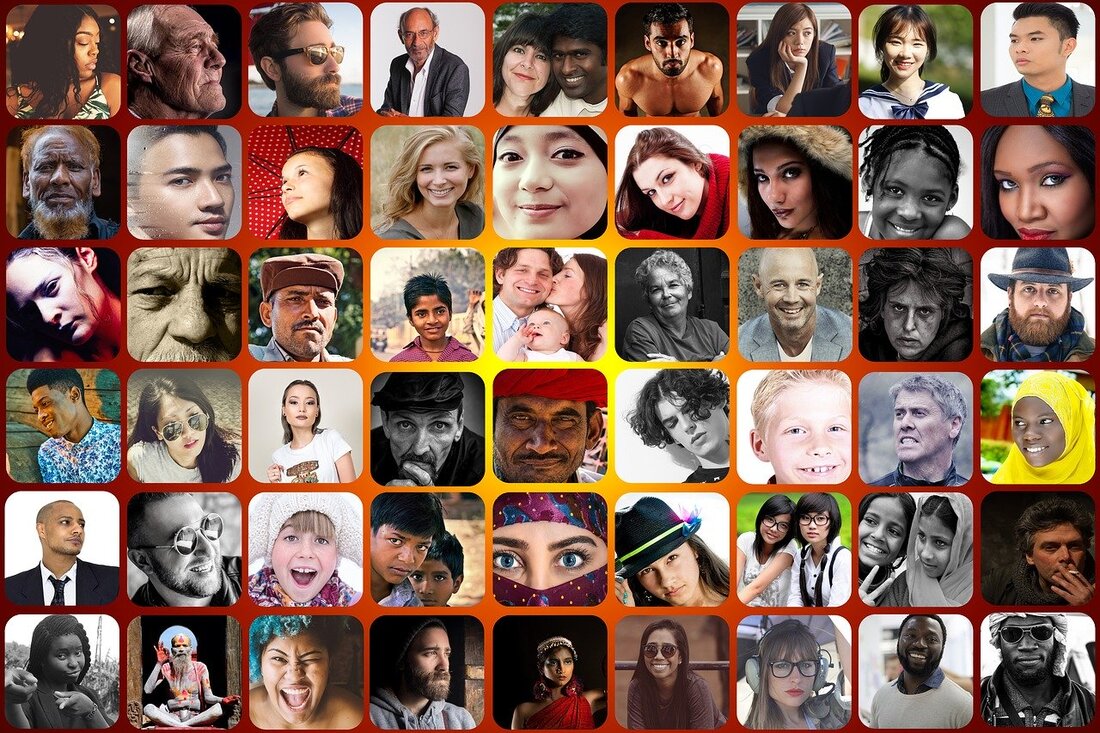
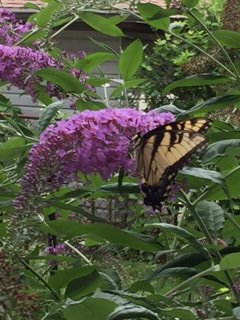
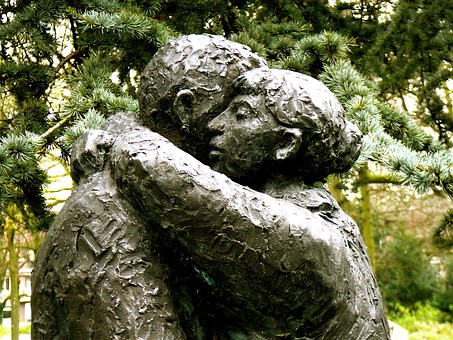
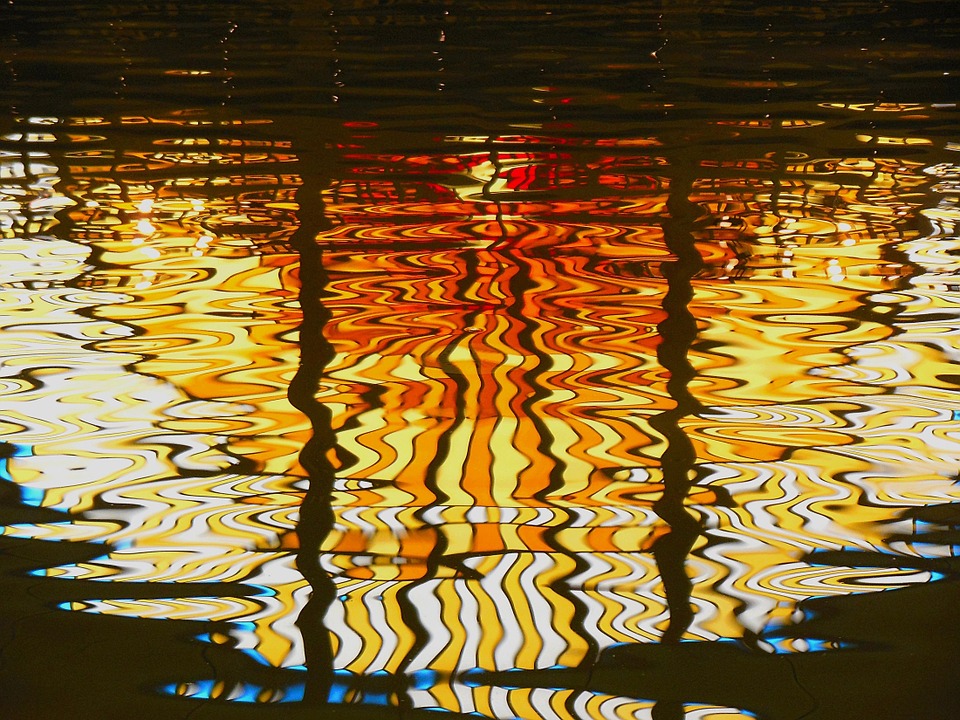
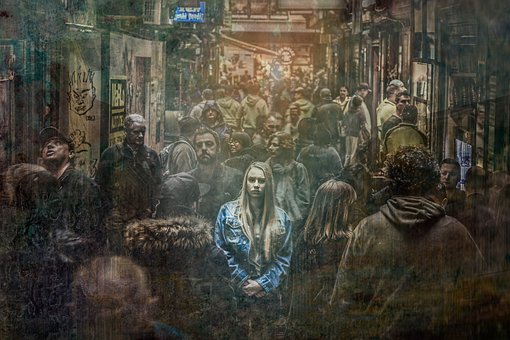
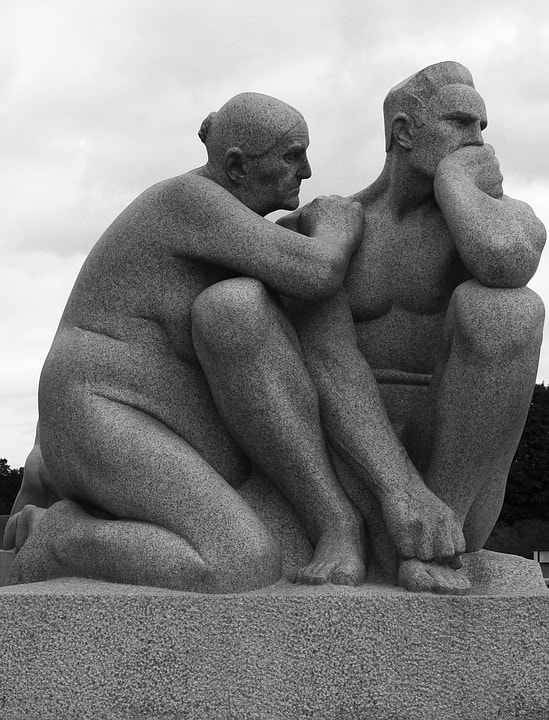

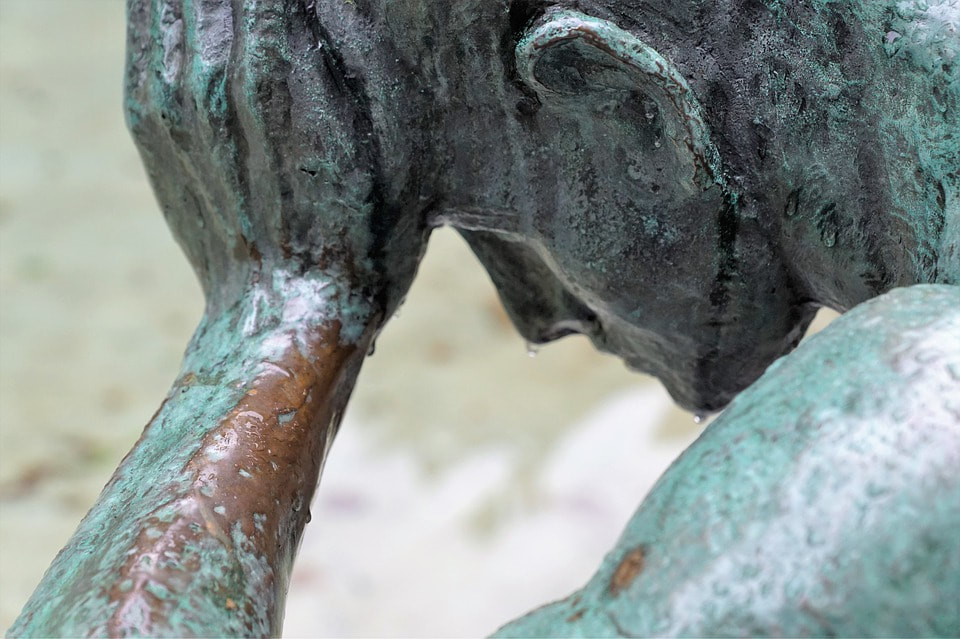
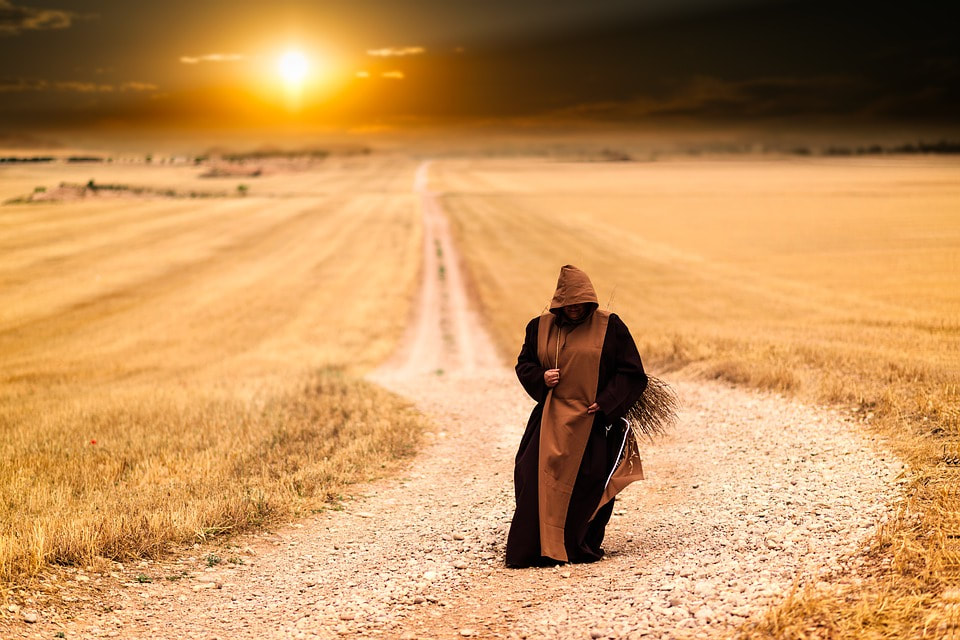

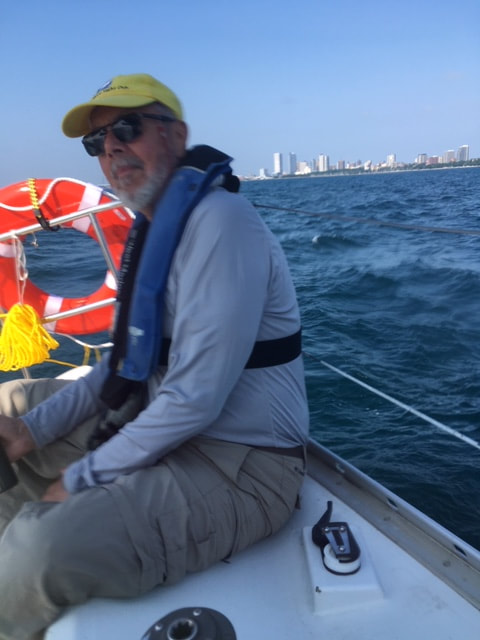
 RSS Feed
RSS Feed
